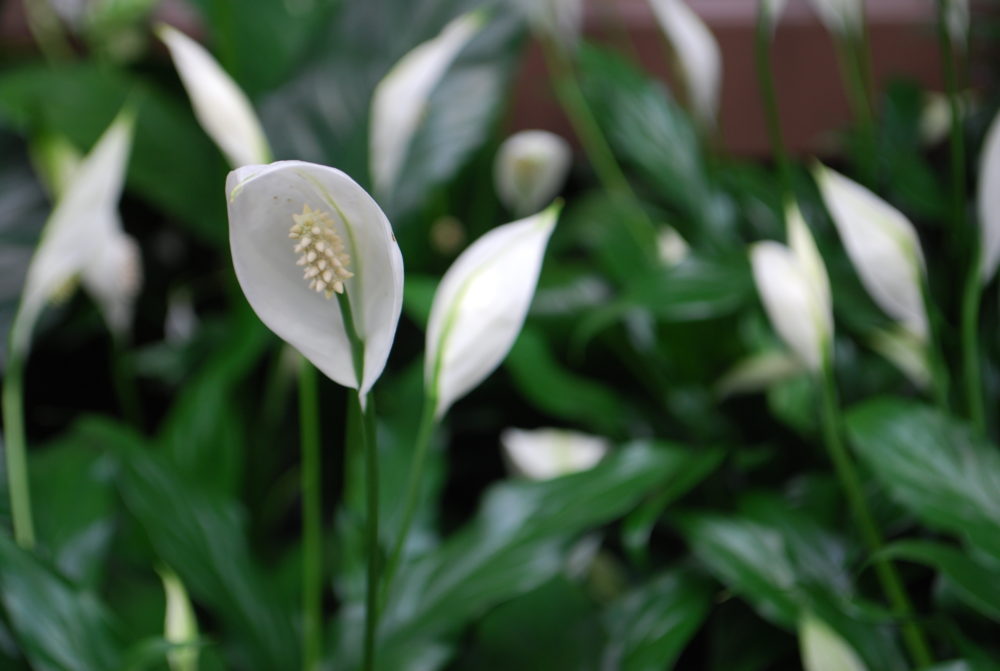If you have any reason to suspect your pet has ingested something toxic, please contact your veterinarian or one of the other resources listed:
• ASPCA Animal Poison Control Center 24-hour hotline at (888) 426-4435
• Pet Poison Helpline® 24-hour animal poison control service at (855) 764-7661
Peace Lily

Common Name: Peace Lily
Scientific Name: Spathiphyllum
The Peace lily is a common houseplant in the US and is not a true lily. The plant has large glossy dark green leaves and provides a showy white flower. The Peace lily contains calcium oxalate, an insoluble crystal that can cause nephrotoxicity if ingested. Typically the crystals irritate the mouth mucosal making ingestion undesirable. If ingestion is suspected, then treatment is recommended.
Signs and symptoms of toxicity: oral irritation, drooling, pawing at the mouth, vomiting and difficulty swallowing
Toxic consumption: The minimum threshold for toxicity is not known and suspected consumption should be reported immediately.
References:
– Blakely B, Waldner C, Bildfell R, Black W. Plants poisonous to animals. The MERCK Manual Pet Health Edition Web site. http://www.merckmanuals.com/pethealth/special_subjects/poisoning/plants_poisonous_to_animals.html. Updated 2011. Accessed May 20, 2015
Pet Poison Control is provided free as a public service by the American College of Veterinary Pharmacists. Today we’re asking you to support us with a small donation. If you would like to dedicate your gift in honor or memory of a pet or individual, you will have that option before checkout. Your gift of any amount helps us maintain this resource and make it available to the pharmacy and veterinary communities. Thank you!





